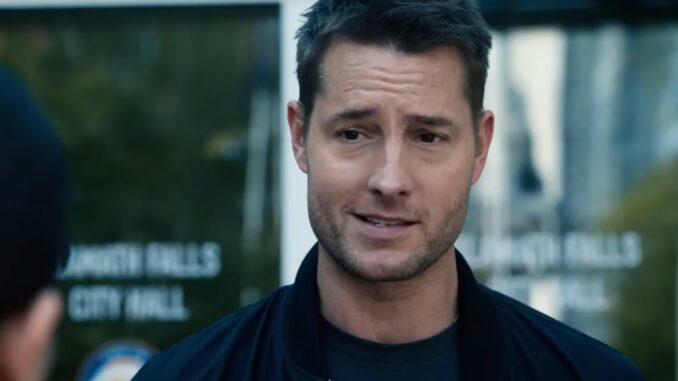
Action heroes of the past are much more toxically masculine.
Hartley’s take on the reason for Tracker’s success with the audience is definitely one that surprised me, but it is also likely a contributor to viewers sticking with the show since the premiere. Colter Shaw makes for a different kind of action hero with Tracker like a modern Western. Action heroes of the past are much more toxically masculine. These are the kinds of characters who ignore the needs of others around them in order to achieve their own goals, they take advantage of the women whose paths they cross, and they always have to be the biggest and loudest force in the room.
Colter is the opposite of that. While he might keep himself closed off when it comes to his past and the traumas associated with his family, he is more than willing to offer complete strangers support, empathy, and his own strength to help them through their traumas. While Colter is busy searching for clues in seemingly impossible cases, he always handles witnesses or those who know the victims with kid gloves. He is soft spoken and understanding, waiting to understand who they are and what they know before he ever accuses anyone of anything.
Even in the season 2 episode “The Nightingale,” in which Colter is faced with those who prefer violence do the talking, he chooses to use his words first. There, he is faced with gang members, angry police officers, and a survivalist, and he still attempts to diffuse situations by talking things out.
That is very much the hallmark of Colter’s character. Colter Shaw has all the skills (and then some) of classic action heroes, but without all of their toxic traits. That makes him a refreshing hero for today’s TV climate, where many newer procedurals are being canceled, and many characters are not getting the chance to be fleshed out. Tracker will likely outlive many of the newer procedurals, and that is due in large part to Hartley’s correct assessment of Colter Shaw’s positive masculinity.
When you think of masculinity on television, chances are your mind jumps to the usual suspects—stoic action heroes, emotionally unavailable protagonists, or men who express power through dominance. But Tracker’s Colter Shaw is flipping that tired script—and it’s about time we started talking about it. Let’s dive deep into how Colter’s brand of healthy masculinity is quietly reshaping narratives and becoming one of the show’s most powerful assets.
What Is Healthy Masculinity Anyway?
Before we break down Colter’s character, let’s define what we’re dealing with.
Healthy Masculinity vs. Toxic Masculinity
-
Toxic masculinity pushes ideas like “real men don’t cry,” aggression equals strength, and vulnerability is weakness.
-
Healthy masculinity, on the other hand, embraces emotional expression, empathy, responsibility, and respect.
Colter falls squarely into the latter.
Colter Shaw: The Anti-Toxic Hero We Didn’t Know We Needed
In a TV landscape often dominated by machismo and bravado, Colter Shaw is a refreshing outlier. He’s not just tracking criminals—he’s tracking a deeper, more balanced sense of self.
He Listens First, Acts Second
Why Empathy Is a Superpower in Colter’s World
Colter doesn’t charge into situations guns blazing. Instead, he listens, evaluates, and adapts. This emotional intelligence makes him more effective—and more relatable.
He’s Physically Strong—But That’s Not His Whole Identity
Sure, Colter is capable and resourceful, but the show never lets his physical strength define him entirely.
It’s His Moral Compass That Sets Him Apart
Colter makes tough decisions guided by integrity, not ego. His sense of justice isn’t about being the toughest guy in the room—it’s about doing what’s right, even when it’s hard.
Emotionally Available, And Proud Of It
We see Colter grieve. We see him doubt. We see him open up.
Vulnerability Is Not a Weakness
Unlike many male leads, Colter doesn’t hide his pain. This rawness makes him a richer character—and a better role model.
He Respects Women Without Being Performative
Colter interacts with female characters as equals. He’s not condescending, not flirtatious unless it’s mutual, and never dismissive.
Why This Matters in Modern Storytelling
Respect shouldn’t be revolutionary, but it often is. Tracker doesn’t make a big show of it—it just presents it as normal, which is the point.
Mentorship Over Machismo
Colter doesn’t flex his knowledge or hold it over others.
Teaching Without Tearing Down
Whether he’s guiding a young side character or working with law enforcement, Colter models constructive leadership.
He Sets Boundaries—And Honors Others’ Too
Another underappreciated trait? Colter knows when to walk away. He doesn’t force conversations, demand emotional labor from others, or invade personal space.
Balance Between Independence and Connection
Colter is a loner, yes—but he doesn’t shut people out completely.
He Doesn’t Romanticize Isolation
He values relationships, even when they’re complicated. His independence isn’t about avoiding people; it’s about showing up when it matters most.
Colter Breaks the Mold of the “Loner” Archetype
Typically, loners in media are cold, emotionally stunted, or carrying a “dark secret.” Not Colter.
He’s a Healthy Loner, Not a Damaged One
He’s self-sufficient, but not emotionally broken. He chooses solitude for clarity—not because he’s incapable of connection.
Resilience Without Rage
Colter faces danger, betrayal, and loss—but he doesn’t explode. He processes, responds, and adapts.
Rage Isn’t His Default Emotion
He doesn’t rely on anger to fuel him, which is a huge deviation from action-hero norms.
Healthy Risk-Taking: Courage With a Conscience
Colter takes risks, but never recklessly.
He Thinks Before He Leaps
Courage isn’t about jumping into the fire for no reason. It’s about assessing the flames—and still stepping in when necessary.
Embracing Growth
Colter isn’t static. He learns from each encounter, each case, and each misstep.
Character Development That Feels Real
He evolves—not because the plot demands it, but because growth is part of his DNA.

He Challenges Stereotypes Without Making It a Slogan
Colter never announces he’s breaking the mold. He just does it—quietly, confidently, consistently.
The Bigger Picture: Why This Portrayal Matters
In a culture where young men are bombarded with extremes, Colter offers something grounding: a blueprint for being both strong and soft, independent and connected.
Conclusion: Colter Is The Quiet Revolution We’ve Been Waiting For
Colter Shaw isn’t trying to be a symbol—but he is one. In every choice, every emotionally honest conversation, and every act of thoughtful bravery, he reminds us that being a man doesn’t mean being hard. It means being human. So while the explosions and plot twists keep us watching Tracker, it’s Colter’s balanced, emotionally rich masculinity that stays with us long after the screen fades to black.